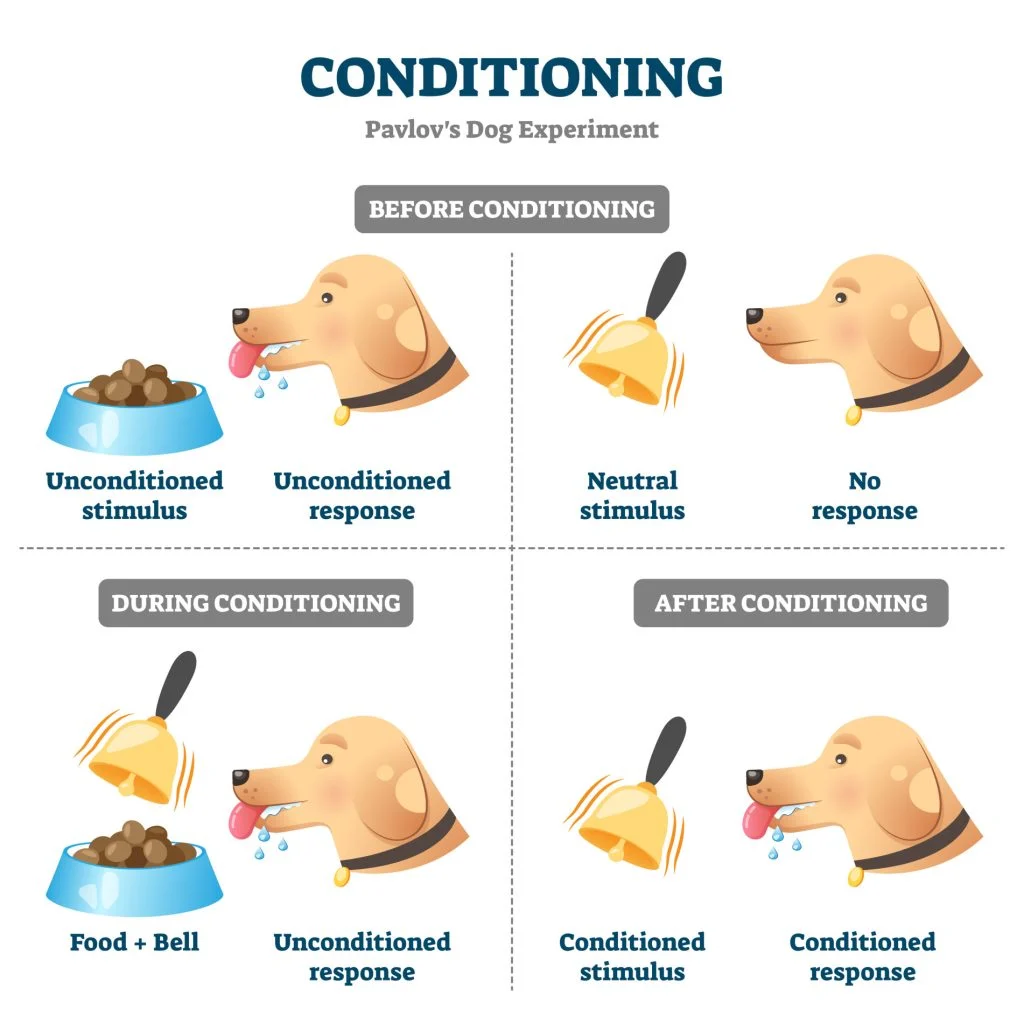Behaviourism
Basic assumptions of behaviourism
Behaviourists believe that we are born as a ‘blank slate’- a ‘tabula rasa’. Everything we become is shaped by the process of learning from our environment
Extreme ‘nurture’ end of nature-nurture debate
Argues that in order for psychology to be scientific it should focus on observable behaviour which can be objectively measured, rather than on things like cognitive processes which can only be inferred- rejected the idea of introspection
Lab experiments are the best way to achieve this!
Pavlov’s Research

Classical conditioning- Learning by association. Occurs when two stimuli are repeatedly paired together- an unconditioned stimulus and a new ‘neutral’ stimulus. The neutral stimulus eventually produces the same response that was produced by the unlearned stimulus alone.
Operant conditioning- A form of learning in which behaviour is shaped and maintained by its consequences. Possible consequences of behaviour include positive/ negative reinforcement or punishment.
Reinforcement- A consequence of behaviour that increases the likelihood of that behaviour being repeated.
Operant Conditioning- Skinner’s Research
B.F Skinner (1953) suggested that learning is an active process whereby humans and animals operate on their environment. In operant conditioning there are three types of consequence of behaviour:
Positive reinforcement- receiving a reward when a certain behaviour is performed, for example praise from a teacher for answering a question correctly in class.
Negative reinforcement- occurs when an animal (or human) avoids something unpleasant. For example, when a student hands in an essay so as not to be told off, the avoidance of something unpleasant is the negative reinforcement
Punishment- an unpleasant consequence of behaviour, for example being shouted at by the teacher for talking during a lesson
NOTE Positive and negative reinforcement increase the likelihood that a behaviour will be repeated. Punishment decreases the likelihood that a behaviour will be repeated.